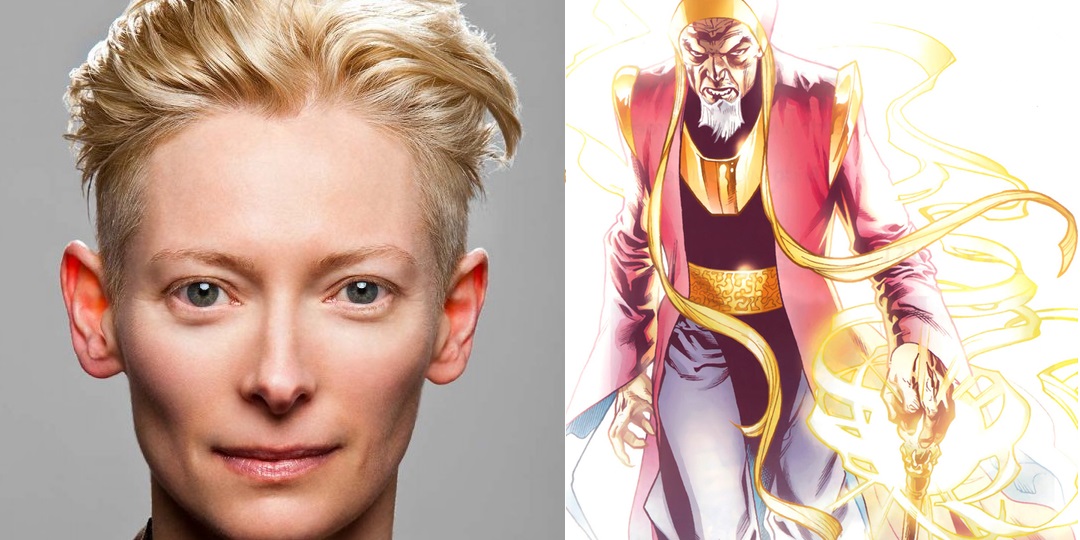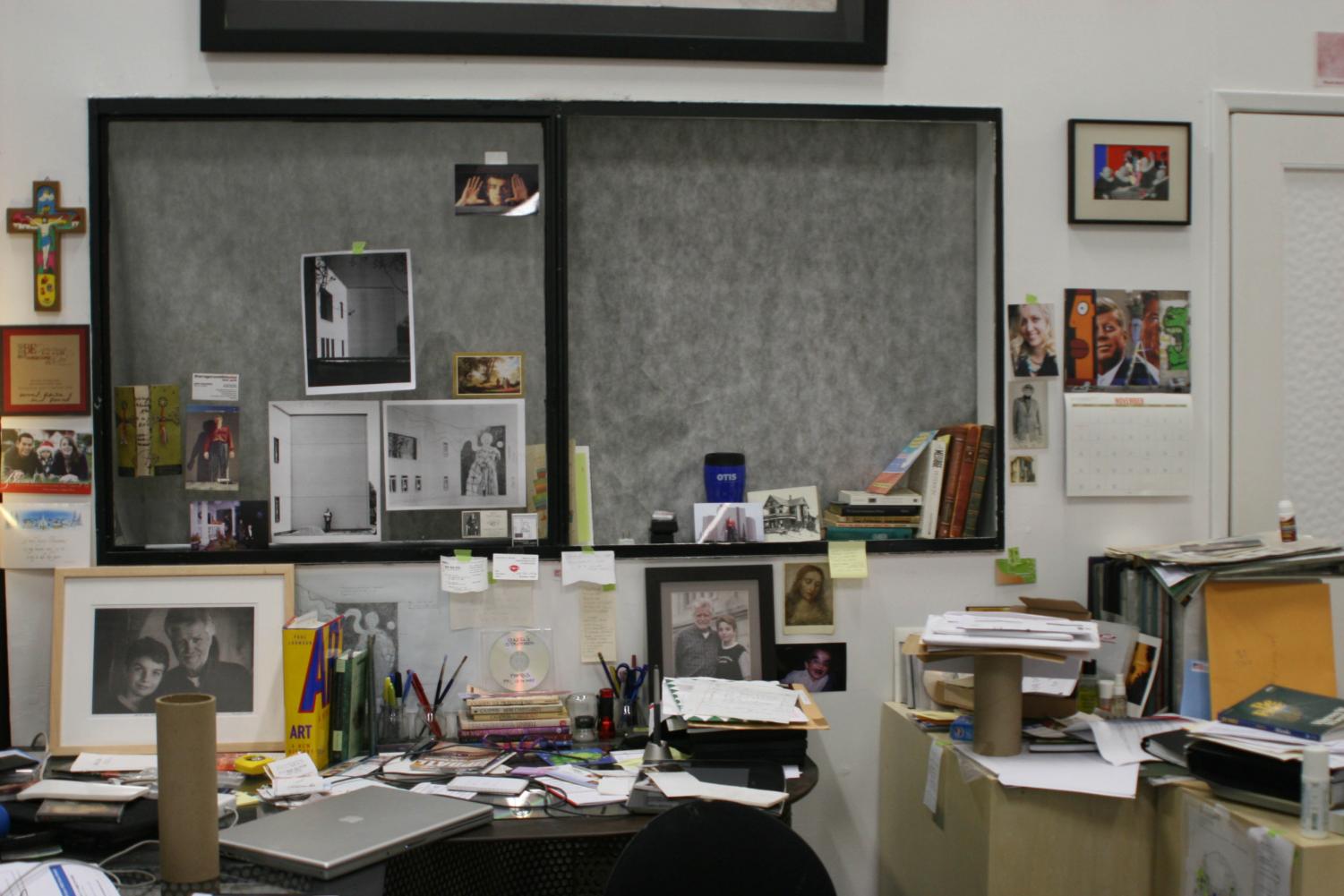Written by Jubilee Pham
With the release of Marvel’s latest blockbuster “Doctor Strange” the term “whitewashing” has appeared in numerous examples of headlines alongside social media posts concerning the film’s casting choices.
Tilda Swinton’s acting really isn’t relevant to the race/whitewashing issues of Doctor Strange. Like there aren’t good Asian actors? Sheesh.
— Gavia Baker-Whitelaw (@Hello_Tailor) November 6, 2016
doctor strange had so many opportunities to be a superhero movie with asian leads but here we are with eggs benedict and tilda swinton
— Trang Dong (@tranganhdong) November 6, 2016
The issue also concerns the live-action adaptation of the manga series and anime “Ghost in the Shell.” Most recently, the marketing team for “Ghost in the Shell” launched a promotional “meme maker” which encouraged users to complete the statement “I Am…” and upload their own photos.
However, instead of using it for light-hearted fun to talk about their unique traits, some Twitter users generated images that expressed their distaste for the movie.
The Ghost in the Shell Website https://t.co/eqy8CpndC6 has a meme maker of sorts where anyone could “become Major” so I had some fun…. pic.twitter.com/EadKs04H9a
— VzA (@ValerieComplex) March 11, 2017
@DLohRidah @ValerieComplex @fangirlsmash pic.twitter.com/BSbNmln1vT
— Mari, Ojibwe (@CyborgN8VMari) March 12, 2017
In the context of Hollywood, whitewashing refers to the practice of giving roles intended for People of Color (POC) to white actors. It’s a problem as old as the film industry itself, which is historically rooted in racism and intended as minstrelsy entertainment.
Early examples of whitewashing include the 1915 silent film “The Birth of a Nation,” which had white actors in blackface portraying black men as unintelligent and sexually aggressive towards white women, and the iconic “Breakfast at Tiffany’s” where Mickey Rooney donned heavy makeup and fake buck teeth to play Japanese landlord Mr. Yunioshi.
Many actors of color such as “Agents of SHIELD” actress Ming-Na Wen and “Black Panther” star Chadwick Boseman have spoken out against whitewashing while also demanding more representation. Fans who are POC have also rallied against the problem on social media, while also demanding more representation using hashtags like “#WhiteWashedOUT,” “#OscarsSoWhite” and “#RepresentationMatters.”
However, whitewashing still persists and, according to experts, there is no easy solution for it.
“Doctor Strange” saw Tilda Swinton, a white British actress, as the Ancient One, who was originally a male character of Tibetan descent. Then, “Ghost in the Shell” cast Scarlett Johansson as Japanese cyborg Major Motoko Kusanagi.
The defenses regarding the casting choices point to a perceived need for exposure by casting well-known actors combined with the desire to “play it safe” for lucrative purposes.
“Doctor Strange” writer C. Robert Cargill cited political tensions between China and Tibet as one of the biggest reasons for giving The Ancient One a Celtic origin instead of Tibetan, fearing the risk of alienating Chinese audiences.
Cargill said in an interview with the pop culture show “Double Toasted” that he did not want “the Chinese government going, ‘Hey, you know one of the biggest film-watching countries in the world? We’re not going to show your movie because you decided to get political.’”
Marvel’s official press statement concerning The Ancient One went the more subdued route, saying, “Marvel has a very strong record of diversity in its casting of films and regularly departs from stereotypes and source material. … We are very proud to have the enormously talented Tilda Swinton portray this unique and complex character alongside our richly diverse cast.”
This sentiment is echoed by “Ghost in the Shell” director Rupert Sanders: “To me, you know, I cast very much from the gut and I think I was very lucky to be able to get an amazing international cast of people that I’ve always really wanted to work with,” Sanders said during the Tokyo debut of the first trailer. “Scarlett was one of those people, and to me there’s very few actresses who’ve had 20 years of experience, who have the cyberpunk aesthetic already baked in.”
Others, such as Korean-American actress Jackie Dallas, strongly disagree with Sanders.
“I was really disappointed with that casting decision,” Dallas commented in an email interview. “I absolutely love Scarlett Johansson and respect her on so many levels, and while I think that she should have turned down the role based on principle, as an actress, it’s a tough position to be offered an amazing role and refusing it.”
“She never should have been offered the role [of Motoko Kusanagi] to begin with,” Dallas continued. “The role is written as an Asian, the entire series is based off her character being Asian, the story takes place in Asia, it should have gone to an Asian actress, no question. There are practically no big budget Hollywood films with a lead Asian actress and this would have been a monumental opportunity and progressive step forward for all Asian actors, that we simply got robbed of.”
While Marvel and Sanders are content with deflecting the underlying issue of the lack of representation for POC, notable director Ridley Scott—known for his films “Alien,” “Blade Runner” and “The Martian”—didn’t bother making excuses.
Back in 2014, Scott’s big-budget film “Exodus: Gods and King,” based on the biblical story of Moses, came under fire for casting white actors in its lead roles despite its Egyptian setting. In an interview with Variety Magazine, he responded to the public outcry by bluntly stating, “I can’t mount a film of this budget, where I have to rely on tax rebates in Spain, and say that my lead actor is Mohammad so-and-so from such-and-such. I’m just not going to get it financed. So the question doesn’t even come up.”
Scott inadvertently addresses the fact that it has become so commonplace to see white characters everywhere that it is now the default. And in an industry that has been perpetuating that default for over a century, Scott explains that it is incredibly difficult to stray from it while also receiving commercial success, much less a green light.
“Hollywood likes to cast ‘established’ actors in their projects to ensure box office draw and viewership,” Dallas said, in regards to how difficult it is for new actors to gain recognition. “This is why you see the same faces over and over again and so once you gain momentum, it becomes easier to book roles since you have experience and a fan base already.”
[pullquote speaker=”Jackie Dallas” photo=”” align=”left” background=”on” border=”all” shadow=”on”]As an Asian, the numbers game becomes that much more daunting because there are significantly fewer opportunities for us to be represented in mainstream shows and films.[/pullquote]
Andrew Weaver, an assistant professor at Indiana University who studied Hollywood’s minority representation in 2011, told Indiana University Bloomington Newsroom, “Hollywood’s sort of given up on the idea that you can have crossover success with a minority cast. You get this discrimination in the casting of roles, where they’re going to cast whites if at all possible to maximize the audience.”
However, other studies have shown that this way of thinking is misguided.
In February 2016, the Ralph J. Bunche Center for African American Studies at UCLA published a report titled, “2016 Hollywood Diversity Report: Busine$$ as Usual?” The report analyzed the top 200 major theatrical films of 2014 as well as 1146 television shows during the 2013-14 season to see how minorities and women were being represented.
The center found that films with relatively diverse casts were the most successful in terms of box office performance, return on investment and diversity in audience demographic. The statistics still ring true for more recently released films that heavily feature diverse casts such as “Rogue One: A Star Wars Story,” the Disney animated film “Moana” and the critically acclaimed “Moonlight.”
However, this doesn’t seem to be a huge cause for change.
“The Hollywood industry is woefully out of touch with America’s increasing diversity, despite increasing evidence that diversity is good for business,” the center stated. “The false notion that there is a necessary tradeoff between diversity and excellence, the report concluded, has enabled this industry business as usual.”
Indeed, POC are still overwhelmingly relegated to providing support for white leads.
To prove this point, the USC Annenberg School for Communication and Journalism conducted a study analyzing inequality in 800 of the most popular movies ranging from 2007 to 2015. They found that 73.7 percent of characters were white and that “a total of 26.3 percent of all speaking characters were from an underrepresented racial/ethnic group,” which included black, Latino, Asian, Middle Eastern, Native American and “mixed race” characters all together.
And of that 26.3 percent, Asian were at the bottom of the list with only 3.9 percent.
“TV and film is a very aesthetic visual canvas and there are fewer roles available for minority actresses after the age of 25,” Dallas said, when asked about her personal struggles as an Asian American actress. “I feel that many of my auditions, even now, are stereotypical Asian roles, and while it’s hard to turn these down as an aspiring actor, I do wish that there were more substantial roles written for ‘real life, born and raised in the U.S., Asian American’ roles.”
This lack of real life Asian American roles is not only statistically poor, but also emotionally damaging, affecting POC’s views of themselves by negatively impacting their self-esteem and sense of personal identity.
“I got really excited whenever I saw an Asian person [on screen], and gradually began to notice that none of those roles were very big pieces of the plot,” said Stephanie Lin, a Chinese-American student at Liberty University, as she reflected on her childhood. “I started wondering why I personally associate beauty/handsomeness with more Caucasian features even though I myself exhibit none of those features.”
Hollywood started out as a predominantly white institution, and will continue to remain so as long as the industry still profits from prominently casting white actors, even if they’re in roles they’re not supposed to be in.
“Adequately responding to Hollywood’s race and gender problem will require more than token efforts and window dressing,” the Ralph J. Bunche Center concluded. “It will require bold gestures that disrupt industry business as usual, which not only adjusts the optics in front of the camera but that also overhaul the creative and executive machinery behind it.”
Fortunately, bold gestures are already happening, as evidenced by the public outcry from actors and fans alike.
Change is happening, slowly but surely, but the support for diverse representation must continue.



